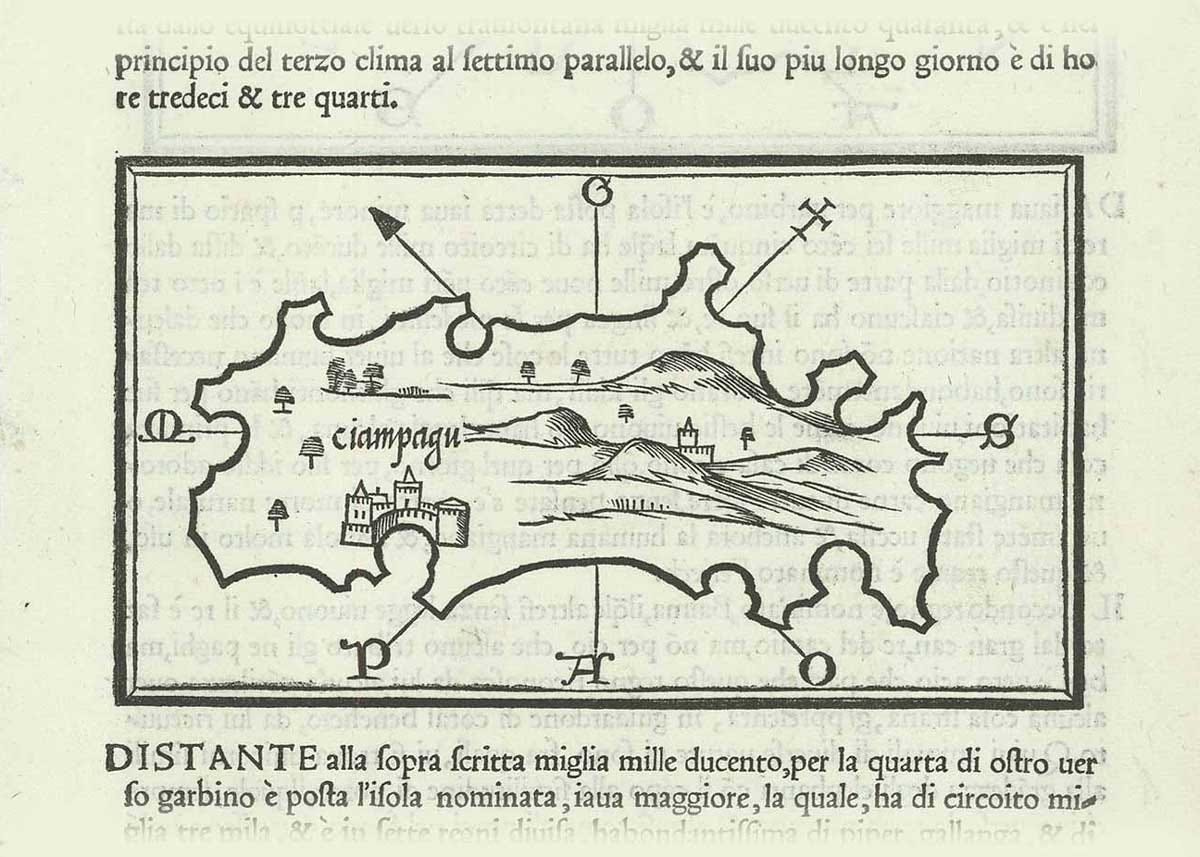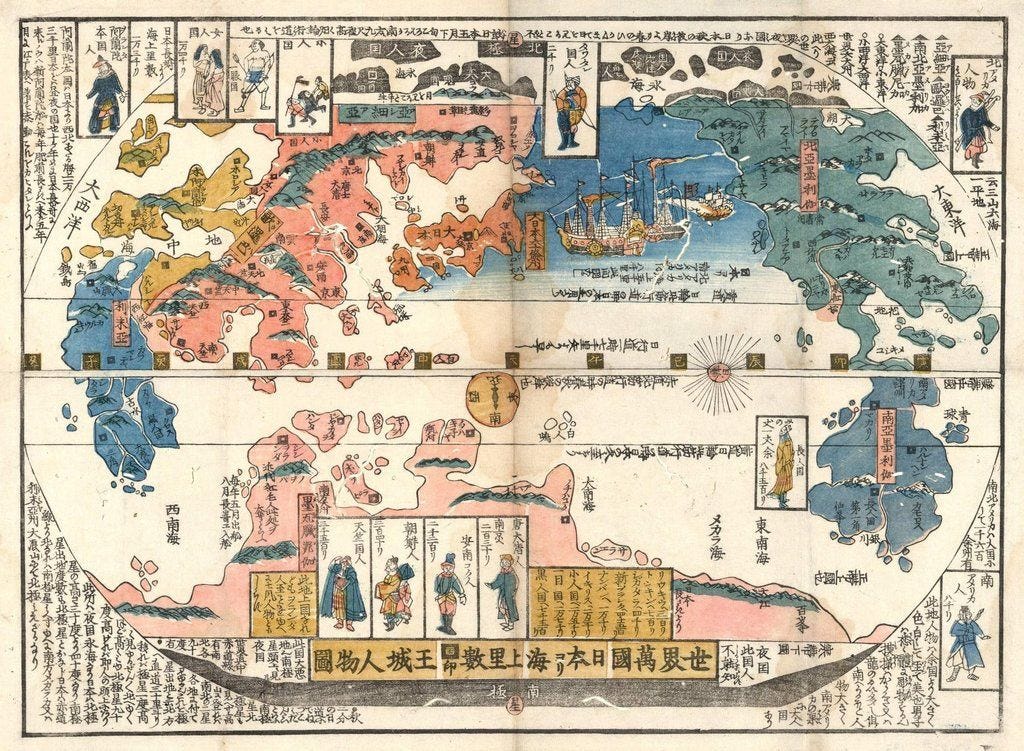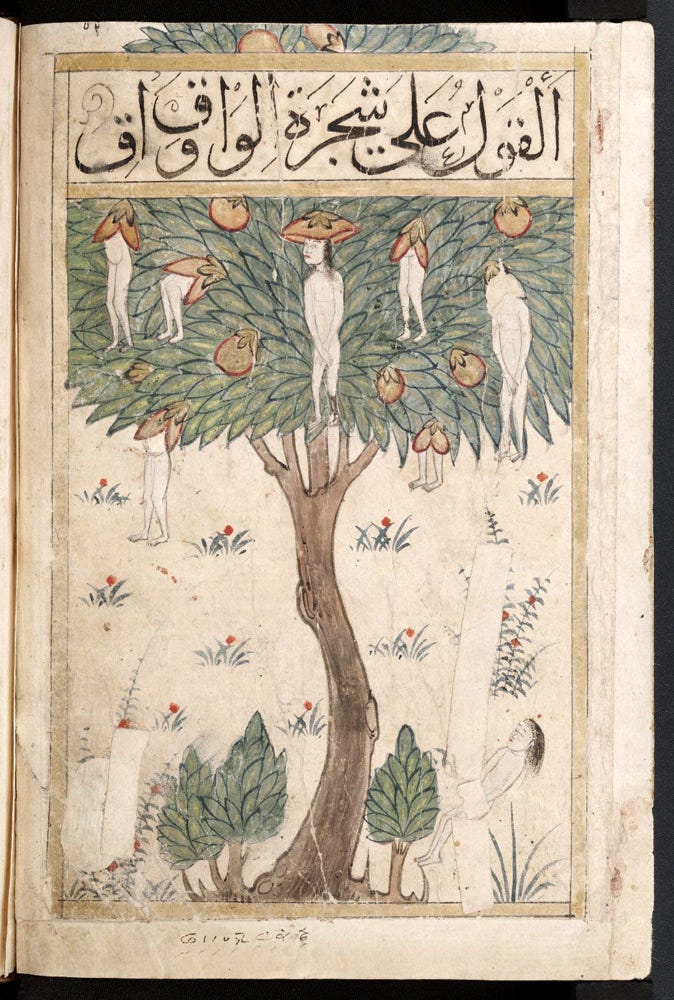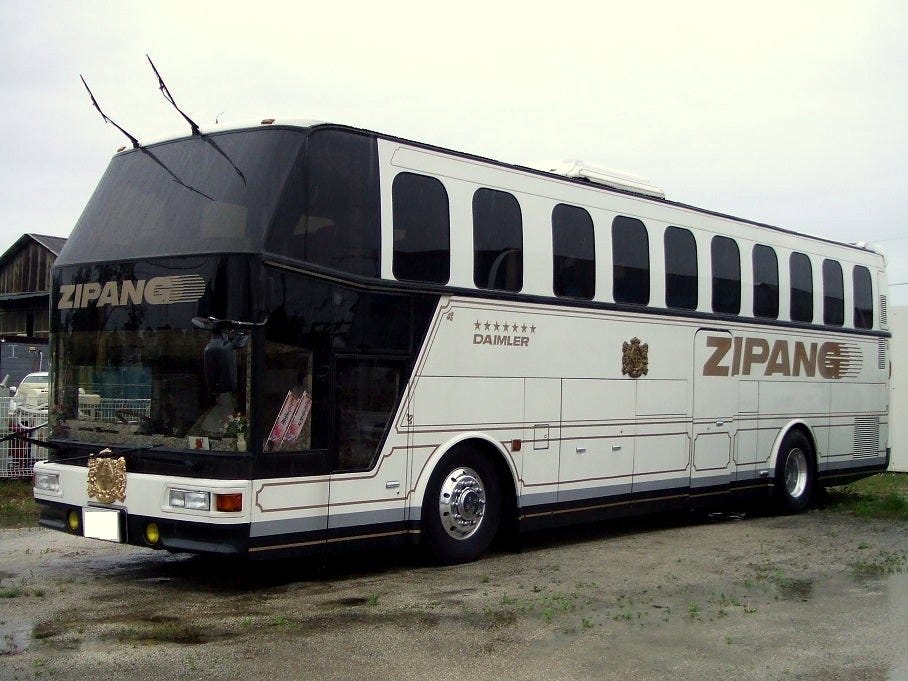Wāqwāq, Cippangu, and the Land of Obsequious Dwarves: old names for Japan
Practically all names we know for Japan were given by outsiders. What did the Japanese actually call their own country?

It is not uncommon for countries and places to have completely different endonyms (what locals call their own land) and exonyms (what foreigners call a country). The Finns call their land Suomi, Hungarians live in Magyarország, and the Chinese in Zhong Guo. Recently, Turkey has embarked on a very expensive campaign demanding that everyone call it Türkiye, not to confuse it with that dubious Christmas treat. Even good ole Bangkok has an actual name that is bound to baffle you.
The first name assigned almost two thousand years ago by haughty Imperial China to the first fledgling kingdom in the Japanese Isles was Wo Kwok (倭国): literally, “the Realm of Obsequious Dwarves”.
But what of Japan? What do the Japanese call their country? Well, the more aware of you would know that Nihon or (more officially) Nippon is the Japanese name for Japan. However, even that name is a Chinese invention that the Japanese got on with just over 1,300 years ago. It’s as if Britain stuck with Albion just because that’s what Romans called it. But what was Japan called before Nihon, what was its original name?
It all started off not so well for the Japanese. The first name assigned almost two thousand years ago by haughty Imperial China to the first fledgling kingdom in the Japanese Isles was Wo Kwok (倭国): literally, “the Realm of Obsequious Dwarves”1. Given the miniature stature of the Japanese prior to the introduction of the Western diet and their enduring penchant for obeisances, that does not sound too far removed from the reality in the early centuries AD. The Japanese, predictably, never warmed to the moniker and did everything in their power to gain a better international image.

The first step was to have the rather unfortunate 倭 wei letter for “obsequious dwarf” swapped for something more complimentary. During the reign of Empress Genmei (707-715AD), the choice fell on 和 wa, meaning ‘harmony’. Given how obsessed the Japanese still are with avoiding confrontation and maintaining social order and cohesion, that was pretty much on the money. With rather premature ideas of grandeur, 和 wa was zhuzhed up with 大 dai, to make 大和, Daiwa or the Great Harmony. Until our days, the 和 wa character denotes ‘Japanese’ in words like 和食 washoku (‘Japanese cuisine’) or 純和風 junwafū (‘traditional Japanese style’). The Chinese never acknowledged that brand-boosting sleight of hand though and 和 wa simply means ‘and’ in Mandarin. In your face, Japan!
With enough lavish gifts to the Emperor, they actually managed to get China (the only country that mattered at the time) to call them 日本, “the origin of the sun” or “where the sun rises from”.
So what did the Japanese call their land before all that tug-of-war with China? The original Japanese self-appellation was Yamato (alternatively, Yamatai), which, rather unimaginatively, stands for “mountainous place”. That lucklustre toponym is the first known name for the first documented political entity on the Japanese Isles. When the time came to borrow the Chinese writing system, Yamato was unceremoniously superimposed over the characters for Daiwa 大和, even if either phonetically or semantically they have nothing to do with each other (a widespread practice in Japan called ateji).
Do you want to learn Japanese in fun-packed and efficient individual lessons?
However, the Japanese would not simply go for second best and settle for remaining a mere “Great Harmony/Bulwark of Social Cohesion”. The next step in their PR revamp project was something more ambitious. With enough lavish gifts to the Tang Emperor, they actually managed to get China (the only country that mattered at the time) to call them 日本, “the origin of the sun” or “where the sun rises from”. And so it has stuck. Once pronounced as Nifon, it later morphed into Nihon and Nippon, both being currently official. Rising Sun, Michael Crichton’s hysterically Japanophobic novel later made into a movie, is based on the poetic Western name for Japan, the Land of the Rising Sun, a very good translation of Nipponkoku (日本国). The name of this publication, Ex Oriente Lux is the Latin for “Light from the East”, which is a lyrical rendering of 日本, ‘the land in the East when the light of the sun rises from’.

However, the holdovers from the unfortunate original branding would carry on for a while. A 10th-century Persian geographer Ibn Khordadbeh described an island called al-Wāqwāq (الواقواق ) in the China Sea ruled by a queen served exclusively by female attendants. That maps out neatly on the earliest description of Yamato’s long-reigning shaman Queen Himiko as well as on the erstwhile Chinese name for Japan Wa Kwok (倭国). In the 14th-century Arab 'Book of Wonders' (Kitab al-bulhan), the Waq-Waq island in the Eastern Seas is so fabulously abundant in gold, even dogs wear gold collars. Apart from the gold-based prosperity, mediaeval authors would persistently describe Japan as populated by only women. The illustration above depicts their idea of procreation in such a land: women would just grow on trees and fall on to the ground once ripe. How very convenient!
The first European who even credibly heard of Japan was Marco Polo in the late 13th century AD. He was told of it, naturally, in Mediaeval Chinese, which he then rendered into Mediaeval Veneto, his native Italian dialect. And that is how Jit Pun became first Cippangu and eventually Giappone. It further spread into other European languages undergoing some variations on the way. Cippangu in various spellings is still occasionally used in commercial trademarks in Japan. I remember a coach company back in the 1990s called Zipang and there is apparently also a namesake beer brand.
The first mention of Japan in English in 1577 called it Giapan. Shortly after, Japan shut its doors to foreign visitors, and for a long time it remained “a riddle wrapped in mystery inside an enigma”. By the time Jonathan Swift's Gulliver embarked on his further, less known voyages, the English spelling had settled on Japan. Gulliver’s visit to Japan followed a stay on the flying island Laputa and the island of magicians and sorcerers Glubbdubdrib and just preceded his adventure in the Land of Talking Horses Houyhnhnms. So even for a fictional character in a fairy tale Japan was an almost mythical place.
With the understandable exception of Wakoku, the rest of the historical names for Japan live on. Yamato-damashii (大和魂), or “the spirit of Japan” is the set of cultural values and characteristics that sets the Japanese apart from other nations. Yamato Nadeshiko (大和撫子) is "personification of an idealized Japanese woman." The 1940 Yamato of the Imperial Japanese Navy was the largest and most powerful battleship ever built. Rather anticlimactically, Daiwa (ダイワ) is the name of a discount supermarket chain. To recoop that somewhat, Daiwa Securities is a large investment bank.
Do you want to learn Japanese in fun-packed and efficient individual lessons?
If you feel affected by the issues described above, please share your concerns, comments, corrections, sarcastic jabs, or righteous indignation below.
The Chinese have a peculiar penchant for picking characters for foreign names that are ostensibly just phonetic but can also be interpreted according to the characters’ meaning. They can be complimentary, neutral, or, on occasion, quite piss-taking. Russia in Chinese is 俄 國 “country of starved people”, Vietnam is 越南 “extreme south”, North Korea is 朝鮮 “morning freshness”, Mongolia 蒙古 “illiterate antiquity”, Britain 英国 “valiant realm”, and Portugal is 葡萄牙“grape fang”. For their own land, the Chinese have reserved 中国 “the kingdom in the centre of the world”.





